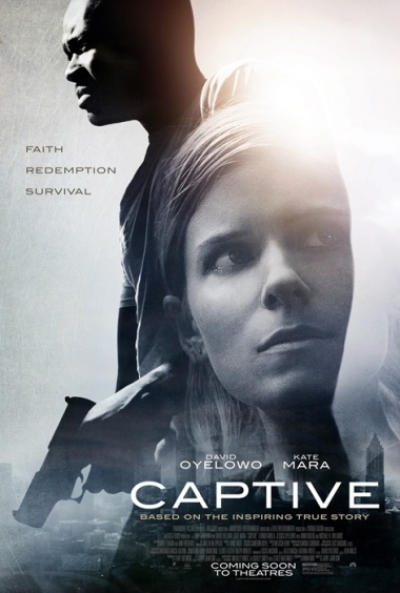
On April 25 1915, 16,000 Australian and New Zealand Army Corps troops established a beachhead in a small cove on the Gallipoli Peninsula, at the Western edge of the Turkish Ottoman Empire.
From the outset, the ANZACs were in an impossible position. Their landing spot was tiny, with no groundwater to drink, or any unexposed land to take respite from enemy fire. At their back was the sea, and above them was a series of sheer cliffs fortified by Turkish troops under the command of one Mustafa Kemal Bey (the future leader of the Republic of Turkey).
The ANZACs had no choice but to dig in, and over the course of the next eight months, a futile trench warfare campaign would be fought between the two sides.
Honouring the ANZACs
100 years on, and another invasion force is diverging on ANZAC cove. This year marks the centenary of the Gallipoli campaign, and many thousands of New Zealanders and Australians will make the journey to Gallipoli to honour the dead and remember the sacrifices they made there.
For Kiwis and Aussies, what happened at Gallipoli back in 1915 is much more than simply another one of the many failed offensives of World War I. It has become enshrined and eulogised as a cultural founding myth of sorts—an ANZAC identity forged through the crucible of suffering and war. No longer did we consider ourselves simply as transplanted Britons.
The qualities revealed at Gallipoli have undoubtedly shaped the way we think about ourselves as a people: bravery, resourcefulness, resilience, the contempt shown for aristocratic class system as displayed by the British officer class throughout the campaign. All these traits have shaped our nations' consciousness—what it means to be an Australian or a New Zealander.
Because of this—we remember. We seek to ensure that the lives lost were not in vain, in unmarked graves in a faraway land, but had meaning, dignity and purpose.
A centenary of a different kind
However, 2015 also signifies the centenary of another tragic campaign.
On April 24 1915, in the capital of the Turkish Ottoman Empire, Istanbul, some 300 kilometres away from ANZAC cove, several hundred Armenian intellectuals were arrested by government forces and deported to Ankara. There they were executed, and so began the systematic targeting and murder of between 1–1.5 million Armenians in the Ottoman Empire.
Formerly an independent Kingdom (and also the first to adopt Christianity as the state religion), Armenia was subjugated by the Ottomans in the fifteenth century and subsequently incorporated into their empire.
Armenians had, for a long time, struggled under Ottoman rule. As Christians living under Islamic authority, they were regarded as dhimmis, non-Muslim second class citizens with fewer rights, opportunities and protections under Islamic law. Despite these hindrances, they tended to be better educated and wealthier than many of their Turkish neighbours, and were much resented for it.
In 1915, this long-held religious tension, coupled with the rise of nascent nationalism in Turkey, sparked the ethnic cleansing of the Armenian nation in Turkey, the first genocide of the twentieth century.
The way this genocide was carried out was particularly horrific as well. Hundreds of thousands of Armenians were deported from their homes and forcibly relocated to concentration camps. Most did not even make it there. Deprived of food and water, marching through the Mesopotamian desert, many died of starvation and exhaustion. Those who refused to go on were executed.
Elsewhere, entire towns and villages would be targeted. The Turkish government employed "killing squads", often comprised of released prisoners, to exterminate entire Armenian communities. Crucifixion was a popular method of execution, with eyewitness accounts describing dozens of people being crucified together, naked, with nails driven through their hands and feet.
Few were spared. Women who were deemed attractive enough would be raped, then sold off as concubines to join a harem. Children would be orphaned, and converted and raised as Muslims. By the end of the genocide, roughly 75% of the Armenian population had been killed, with the rest being driven from their homeland—where they had previously dwelt for over 2500 years.
Silence instead of justice
100 years later, and still there remains no justice for those who perished in the genocide. The Republic of Turkey, despite overwhelming eyewitness, photographic, and documentary evidence to the contrary, refuses to acknowledge any such genocide took place, let alone apologise for it. Within Turkey, any mention of the genocide is illegal, and is punishable by imprisonment.
At this point in time, 22 nations have officially recognised that what took place in 1915 and after in Turkey, was indeed genocide. Australia and New Zealand are not amongst those nations. While the states of New South Wales and South Australia have indeed passed motions recognising the genocide, in June 2014 the Australian government confirmed that they did not recognise the Armenian genocide, and that the motions passed by New South Wales and South Australia had no bearing on Australia's foreign policy.
As witnessed by the angry reaction from the Turkish government to Pope Francis' condemnation of the genocide last week, any similar statement from the governments of Australia or New Zealand would jeopardise the special relationship we share with Turkey as a result of shared history in Gallipoli.
Next week as Australians and New Zealanders we will stop and remember ANZAC day, recognising the sacrifices of those who died for their country, and the impact that continues to have on us today. And we would be right to do so.
However, as Christians, can we remain silent about the other centenary that will be marked on April 24? As we witness, right now, the persecution and martyrdom of Christians in Iraq and Syria, can we let our governments ignore the massacre of our Christian brothers and sisters in 1915, which was committed on a scale which dwarfs anything ISIS has done to this point in time? Or will we stand and condemn this evil for what it is?

Tim Newman lives in Nelson, New Zealand. He holds an MA in History from Canterbury University in Christchurch. Tim is an award winning Christian Today writer and is a career journalist. Tim has given permission for his award winning history articles to be republished.
Tim Newman's previous articles may be viewed at http://www.pressserviceinternational.org/tim-newman.html